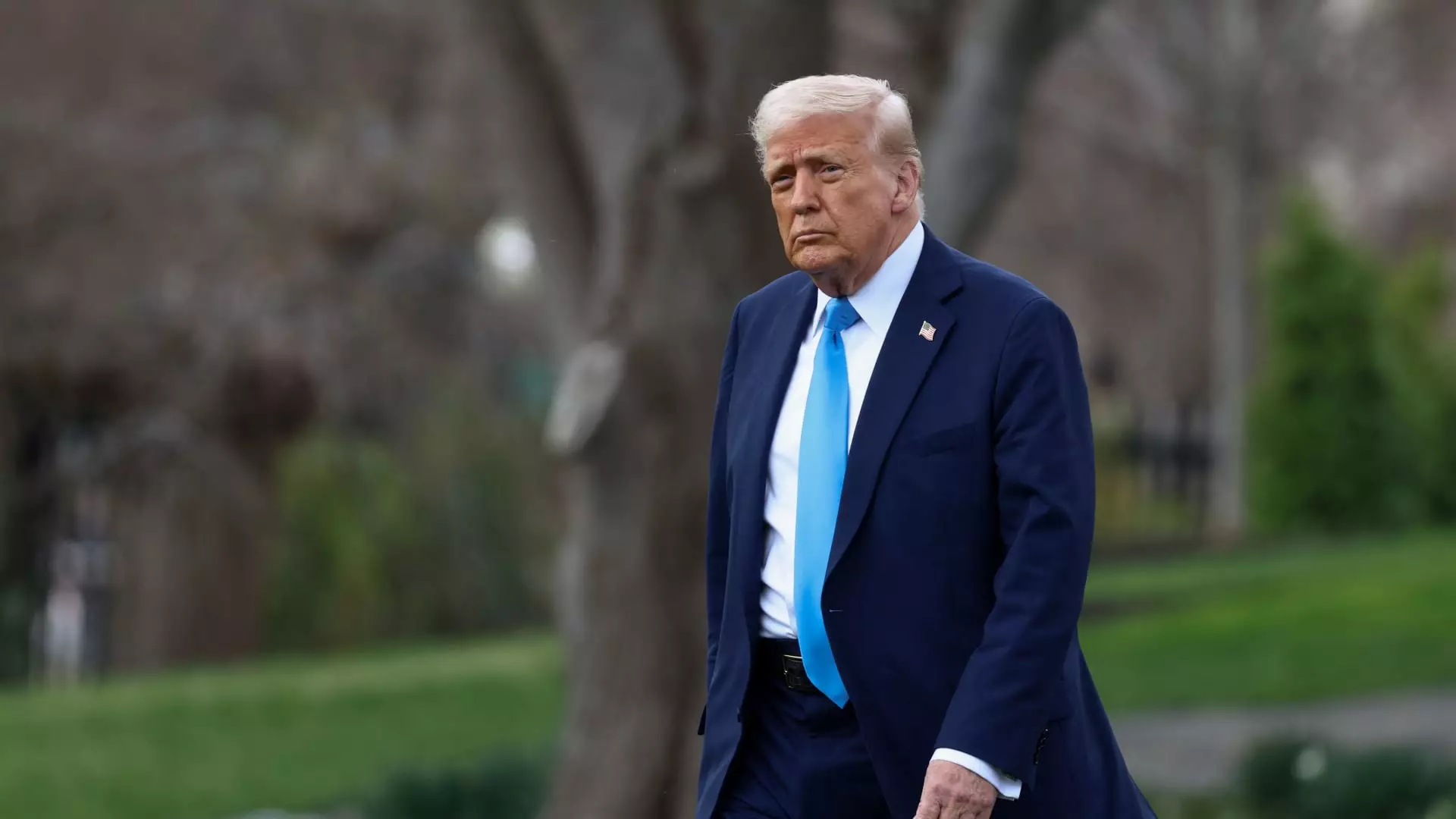In the high-stakes arena of international politics, where diplomacy often hangs by a thread, the recent comments made by former President Donald Trump regarding Russia and Ukraine reflect a troubling synergy between bluster and misguided assumptions. Trump’s ability to oscillate between anger and friendship with international figures like Vladimir Putin not only reveals his unpredictable nature but also raises serious questions about the efficacy of his foreign policy. By prioritizing personal rapport over coherent strategy, Trump has set a disconcerting precedent that could exacerbate global conflicts rather than mitigate them.
Trump’s Emotional Turmoil
Trump’s volatile emotional responses to geopolitical events undermine any semblance of rational analysis. His visceral anger at Putin’s criticisms of Ukrainian President Volodymyr Zelenskyy signifies not only a personal affront but also a fundamental misunderstanding of the diplomatic landscape. Labeling Zelenskyy as a “dictator” during the war indicates a troubling dichotomy; it demonstrates a lack of appreciation for the challenges Ukraine faces under Russian aggression while simultaneously projecting the narrative of authoritarianism onto a leader striving to protect his democracy.
The President’s admission that his anger “dissipates quickly” if Putin “does the right thing” paints a picture of an impulsive leader swayed by momentary emotions, rather than a calculated statesman seeking peace. The danger here is palpable: relying on emotional whims in global governance may lead to catastrophic decisions that ripple far beyond national borders.
Taxing Choices: Secondary Tariffs on Russia
In what might be perceived as a panicked response to the crisis, Trump has vowed to impose secondary tariffs on Russian oil, asserting that this is necessary if further negotiations fail. While it’s important for the United States to take a strong stance against Russia, the proposal of such tariffs raises critical concerns about the broader implications for international trade and energy security. A hefty 25% to 50% tariff on Russian oil could backfire dramatically, driving up prices for American consumers and destabilizing global markets in the energy sector.
Instead of fostering cooperation, this proposed trade war risks solidifying Russia’s position and may lead to a further escalation of tensions, particularly given Europe’s reliance on Russian energy. The suggestion sounds more like an angry ultimatum aimed at a negotiating table than a well-thought-out policy that assesses the interconnectedness of global economies.
The Illusion of Ceasefire
Trump’s insistence on a transition of power in Ukraine, coupled with his expectations for a ceasefire in the region, presents a naïve understanding of the conflict. While dialogue is essential, the assertion that the U.S. can dictate leadership changes in a sovereign nation betrays a misunderstanding of the complexities at play. The partnership between Ukraine and its western allies hinges on a respect for its democratic processes, not on external pressures to form a “transitional government” shaped by Russian ideology.
Moreover, the limited ceasefire agreement observed recently between Russia and Ukraine merely scratches the surface of deeper issues that need addressing. Advocating for a superficial pause rather than advocating for substantial negotiations reveals a lack of long-term vision. By compartmentalizing the issue into separate “spheres of influence,” Trump exhibits a dangerously simplistic approach that could lead to repeated cycles of violence.
Unwarranted Comparisons: Issues with Iran
An equally troublesome aspect of Trump’s recent rhetoric concerns his threats toward Iran. The specter of military action juxtaposed against tariffs sends a chilling message that the U.S. may resort to brute force when faced with diplomatic stagnation. Drawing parallels between Russia and Iran’s significance in global conflicts requires a nuanced understanding that Trump seems to lack. The emphasis on bombings and military intervention overlooks the potential for dialogue and collaboration in favor of intimidation tactics that may further alienate these countries.
By approaching complex foreign interactions with aggression rather than diplomacy, Trump not only undermines the possibilities of fruitful negotiations but also risks escalating tensions that can lead to unrest, showcasing a troubling disregard for the diplomatic avenues available.
Inordinate reliance on emotional reactions, impulsive economic policies, and the blurring of diplomatic goals with aggressive posturing highlight a concerning lack of strategic foresight in Trump’s foreign policy framework. Moving forward, the United States requires leaders who understand the intricate threads that connect nations and prioritize comprehensive solutions over knee-jerk reactions. A progressive, center-wing approach to international relations requires a balance of strength and nuance—something desperately needed in today’s turbulent global climate.

